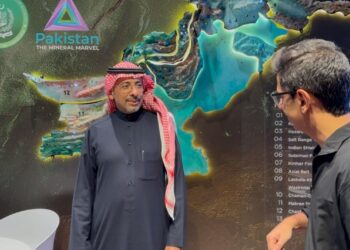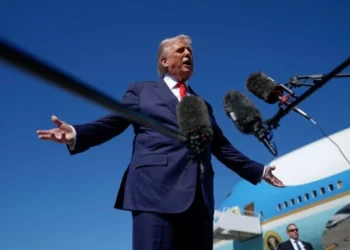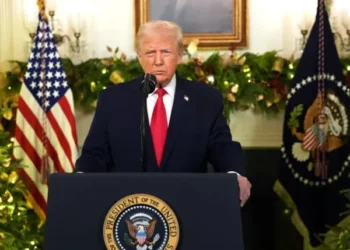In a historic step toward deepening bilateral relations and advancing regional economic integration, Saudi Arabia and Indonesia have signed economic and trade agreements worth $27 billion. These landmark agreements span a wide range of sectors including clean energy, petrochemicals, investment, and technology, marking a new chapter in the growing strategic partnership between the two major economies of the Islamic world.
The agreements were finalized during a high-level bilateral meeting, where officials from both nations emphasized the importance of strengthening cooperation in areas critical to sustainable development and long-term economic growth. The deals were signed in the presence of senior representatives from both sides, underlining the political will behind the economic collaboration.
Key Highlights of the $27 Billion Agreements
According to Saudi state media, the multi-billion-dollar deals are expected to catalyze cooperation in the following areas:
- Clean and Renewable Energy Projects: Focused on green hydrogen, solar energy, and sustainable fuel solutions.
- Petrochemical Industry: Joint ventures to refine and process oil and gas products with cutting-edge technology.
- Technology and Innovation: Collaboration in digital transformation, artificial intelligence, and smart infrastructure.
- Investment and Capital Exchange: Sovereign funds and private investors from both countries will jointly participate in infrastructure and industrial projects.
These initiatives not only underscore the strategic economic alignment between Saudi Arabia and Indonesia but also reflect the evolving priorities of both countries in transitioning to more sustainable and knowledge-based economies.
Strategic Importance for Saudi Arabia’s Vision 2030
For Saudi Arabia, these agreements are a crucial step forward in realizing the objectives of Vision 2030, the Kingdom’s long-term strategic plan aimed at diversifying its oil-dependent economy. Vision 2030, launched by Crown Prince Mohammed bin Salman, seeks to position Saudi Arabia as a global investment powerhouse and a hub for innovation and sustainability.
Saudi officials stated that these agreements with Indonesia directly align with Vision 2030’s goals by:
- Encouraging foreign direct investment (FDI) in high-growth sectors.
- Supporting the development of clean and renewable energy sources to reduce the country’s carbon footprint.
- Creating new employment opportunities for Saudi nationals in technology and industrial sectors.
- Enhancing public-private partnerships for sustainable infrastructure.
Saudi Arabia’s Public Investment Fund (PIF), one of the largest sovereign wealth funds in the world, is expected to play a central role in co-financing joint ventures in Indonesia.
Indonesia’s Vision for Economic Growth and Sustainable Development
Indonesia, the largest economy in Southeast Asia and a member of the G20, views the agreements as a vital part of its national development strategy. With a growing population and increasing energy demand, Indonesia aims to secure long-term energy partnerships, boost foreign investments, and become a leader in green development.
Speaking on the occasion, Indonesian officials said:
“This $27 billion deal is a major leap toward enhancing our economic capabilities. It complements our goals for a greener future and digital transformation, while opening doors to Middle Eastern markets.”
The Indonesian government has also prioritized sustainable energy under its own strategic frameworks, such as the National Energy Policy 2050, which aims to increase the share of renewables in the national energy mix to 31% by 2050.
Clean Energy Cooperation: A Focus Area
A major portion of the agreements centers on clean energy collaboration, including the production of green hydrogen, a key component in the global shift toward carbon neutrality.
Saudi Arabia, which has been aggressively investing in green hydrogen as part of the NEOM project (a $500 billion smart city), sees Indonesia as a valuable partner in scaling green technologies across the Asia-Pacific region. Joint research centers, training programs, and pilot projects in clean energy are expected to be announced in the coming months.
Experts note that Indonesia’s abundant natural resources and favorable geography make it an ideal location for solar, wind, and hydroelectric power generation.
Petrochemicals and Industrial Development
Another significant portion of the agreement involves the petrochemical sector, where both countries aim to explore mutual benefits in refining, distribution, and advanced processing.
State-owned enterprises such as Saudi Aramco and Indonesia’s Pertamina are expected to play key roles in these collaborations. Previously, both companies have explored joint refinery projects, and these new agreements could revive and expand such partnerships.
This sector will not only support industrial expansion but also facilitate technology transfer, workforce training, and shared environmental standards between the two nations.
Technology, Digital Economy, and AI Integration
With the global economy rapidly shifting toward digitalization, both Saudi Arabia and Indonesia have also agreed to boost cooperation in technology innovation, including:
- Artificial Intelligence (AI) research
- Smart city infrastructure
- Cybersecurity and digital governance
- E-commerce and fintech collaboration
This digital partnership is particularly significant as both countries seek to position themselves as digital hubs in their respective regions. With Indonesia’s tech-savvy population and Saudi Arabia’s increasing digital investments, the synergy could accelerate technological transformation.
Geopolitical and Diplomatic Significance
Beyond economic benefits, the agreements carry geopolitical importance, as both Saudi Arabia and Indonesia are key players in the Muslim world and maintain influential positions in international organizations such as the Organisation of Islamic Cooperation (OIC) and the G20.
This partnership signals a shift toward deeper South-South cooperation, where developing nations collaborate to reduce reliance on Western markets and institutions.
Analysts believe that Saudi Arabia is broadening its diplomatic and economic outreach to Asia, while Indonesia seeks to leverage its strategic location to act as a gateway to Southeast Asia for Middle Eastern investments.
Expected Next Steps and Joint Projects
According to sources from both governments, detailed feasibility studies for joint projects will commence soon. These may include:
- Establishment of a Green Energy Research Center in Jakarta.
- Launch of a Saudi-Indonesia Investment Fund.
- Development of a Digital Trade Corridor.
- Expansion of Halal product certification and mutual trade facilitation.
- Construction of infrastructure projects under Public-Private Partnership (PPP) models.
Business forums and bilateral summits are also expected in the coming months to facilitate B2B collaborations and entrepreneurial exchanges.
Conclusion: A New Era of Economic Diplomacy
The signing of the $27 billion agreements between Saudi Arabia and Indonesia marks a milestone in modern economic diplomacy. It reflects the shared ambition of both nations to forge sustainable, innovation-driven, and mutually beneficial partnerships.
As implementation begins and joint projects are launched, this bilateral cooperation is expected to yield significant results in the coming years—not only boosting trade and investment but also fostering environmental sustainability, technological progress, and regional prosperity.
This strategic partnership is set to serve as a model for how Muslim-majority countries can collaborate for common development goals in a rapidly evolving global landscape.

























